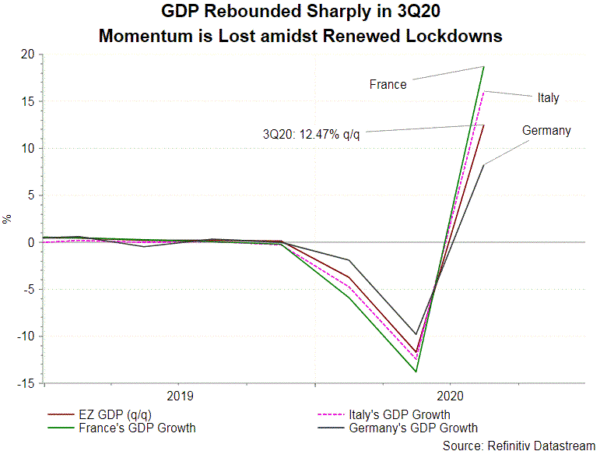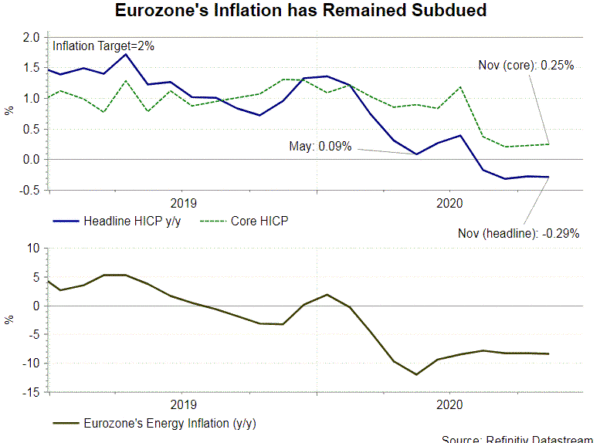After gaining almost +10% this year, we expect EURUSD to strengthen further in 2021. While Eurozone continues to struggle with slow recovery and subdued inflation, the broad-based weakness in US dollar is anticipated to support the pair. As we mentioned in the previous report, we are bearish over US dollar due to dissipation of yield differential, Fed’s ultra accommodative policy outlook and loss of safe haven demand amidst hopes of global reflation. The euro is likely to benefit from these.
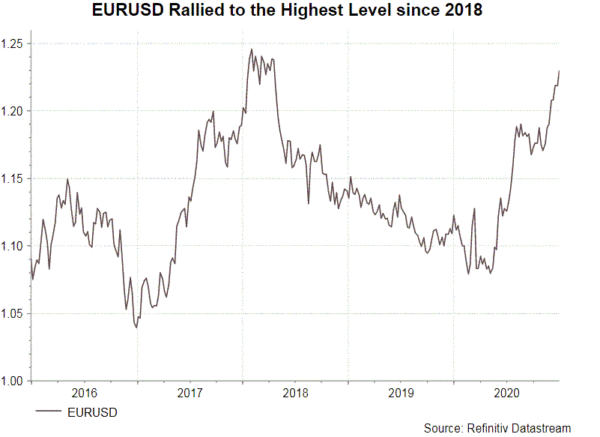
Just like other central banks, ECB implemented unprecedented easing measures shortly after the coronavirus pandemic hit the world. The Pandemic Emergency Purchase Program (PEPP), a temporary QE program launched in March, had an initial envelope of 750B euro. Its size was eventually increased to 1850B euro in December. Besides, the central bank tweaked conditions of TLTRO and APP (a more regular QE program launched after the 2007/08 global financial crisis) earlier this month in order to extend the stimulus to the public. However, these appear “mild”, compared to Fed’s QE infinity announced in March and the shift to average inflation targeting framework in September.
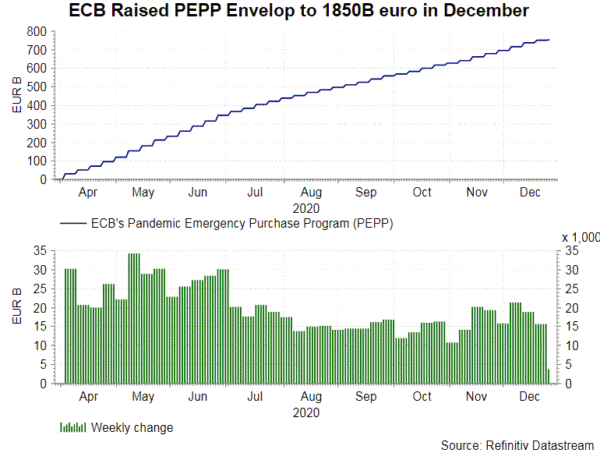
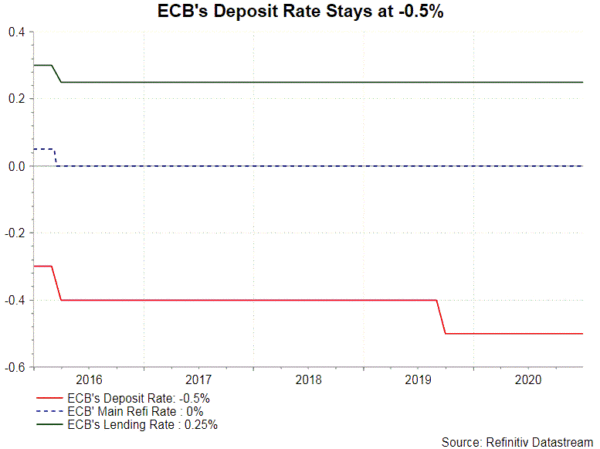
The FOMC cut the Fed funds rate to a record low of 0-0.25% in March Compared to ECB’s leaving the policy rate unchanged, Fed’s 150-bps reduction has significantly narrowed US/ Eurozone yield differential, erasing much of incentive to long USD. On the surface, ECB’s deposit rate, staying at -0.5% since September 2019, is lower than the Fed funds rate. However, the chart below shows that US/Eurozone yield differential has been staying at the lowest level since 2015. The strong correlation between currency pairs and yield differentials signals that there could be more upside for EURUSD if yield differential narrows further.
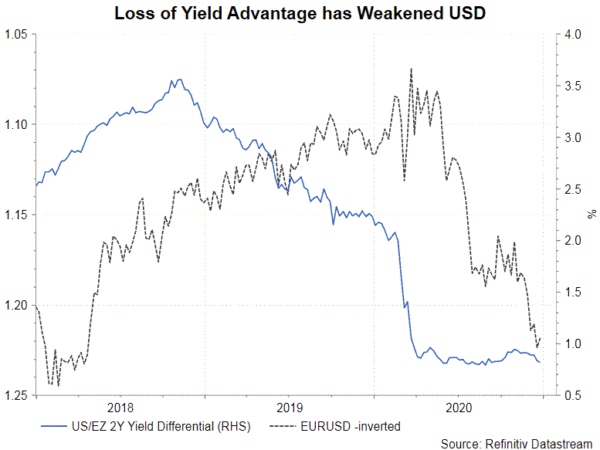
There is nothing to be happy about if the underlying growth momentum of the Eurozone is considered alone. GDP expanded +12.5% w/w in 3Q20, following 2 consecutive months of contractions. However, resurgence of coronavirus cases and renewed restrictive measures should hamper recovery in 4Q20 and 1Q21. Inflation remains subdued with headline CPI in negative since August while core CPI slightly above 0%. Indeed, the ECB staff revised lower the GDP growth forecast for 2021, while inflation forecasts were downgraded quite significantly. However, the single currency is still likely to benefit from the global reflation theme next year. While it remains non-consensual as to whether there will be V-shaped and W-shaped economic recovery in the next year, following the sharp and abrupt recession this March, several indicators have suggested that the worst is behind us. This should bode well for the euro given the bloc’s exposure to international trade and demand from China.
